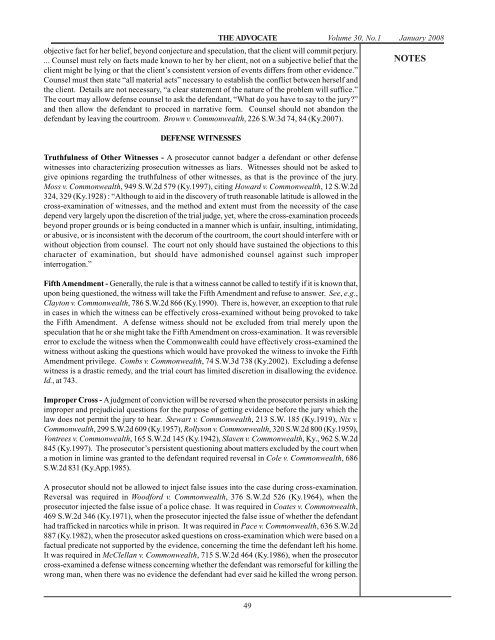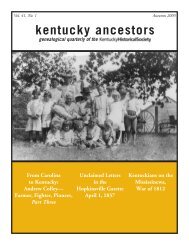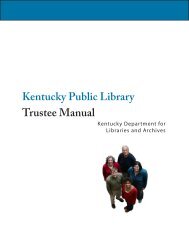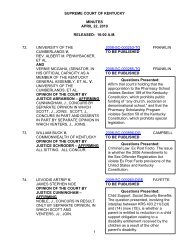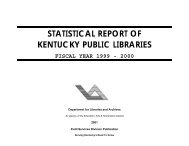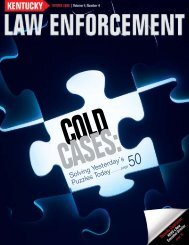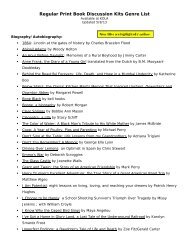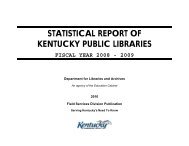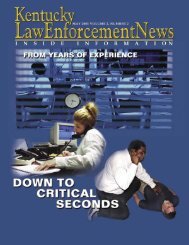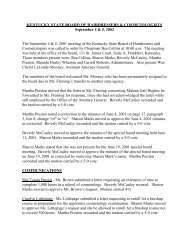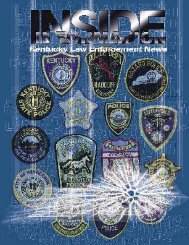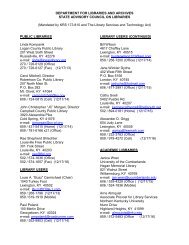Jan08 Advo.pmd - e-archives Home
Jan08 Advo.pmd - e-archives Home
Jan08 Advo.pmd - e-archives Home
Create successful ePaper yourself
Turn your PDF publications into a flip-book with our unique Google optimized e-Paper software.
THE ADVOCATE Volume 30, No.1 January 2008<br />
objective fact for her belief, beyond conjecture and speculation, that the client will commit perjury.<br />
... Counsel must rely on facts made known to her by her client, not on a subjective belief that the<br />
client might be lying or that the client’s consistent version of events differs from other evidence.”<br />
Counsel must then state “all material acts” necessary to establish the conflict between herself and<br />
the client. Details are not necessary, “a clear statement of the nature of the problem will suffice.”<br />
The court may allow defense counsel to ask the defendant, “What do you have to say to the jury?”<br />
and then allow the defendant to proceed in narrative form. Counsel should not abandon the<br />
defendant by leaving the courtroom. Brown v. Commonwealth, 226 S.W.3d 74, 84 (Ky.2007).<br />
DEFENSE WITNESSES<br />
Truthfulness of Other Witnesses - A prosecutor cannot badger a defendant or other defense<br />
witnesses into characterizing prosecution witnesses as liars. Witnesses should not be asked to<br />
give opinions regarding the truthfulness of other witnesses, as that is the province of the jury.<br />
Moss v. Commonwealth, 949 S.W.2d 579 (Ky.1997), citing Howard v. Commonwealth, 12 S.W.2d<br />
324, 329 (Ky.1928) : “Although to aid in the discovery of truth reasonable latitude is allowed in the<br />
cross-examination of witnesses, and the method and extent must from the necessity of the case<br />
depend very largely upon the discretion of the trial judge, yet, where the cross-examination proceeds<br />
beyond proper grounds or is being conducted in a manner which is unfair, insulting, intimidating,<br />
or abusive, or is inconsistent with the decorum of the courtroom, the court should interfere with or<br />
without objection from counsel. The court not only should have sustained the objections to this<br />
character of examination, but should have admonished counsel against such improper<br />
interrogation.”<br />
Fifth Amendment - Generally, the rule is that a witness cannot be called to testify if it is known that,<br />
upon being questioned, the witness will take the Fifth Amendment and refuse to answer. See, e.g.,<br />
Clayton v. Commonwealth, 786 S.W.2d 866 (Ky.1990). There is, however, an exception to that rule<br />
in cases in which the witness can be effectively cross-examined without being provoked to take<br />
the Fifth Amendment. A defense witness should not be excluded from trial merely upon the<br />
speculation that he or she might take the Fifth Amendment on cross-examination. It was reversible<br />
error to exclude the witness when the Commonwealth could have effectively cross-examined the<br />
witness without asking the questions which would have provoked the witness to invoke the Fifth<br />
Amendment privilege. Combs v. Commonwealth, 74 S.W.3d 738 (Ky.2002). Excluding a defense<br />
witness is a drastic remedy, and the trial court has limited discretion in disallowing the evidence.<br />
Id., at 743.<br />
Improper Cross - A judgment of conviction will be reversed when the prosecutor persists in asking<br />
improper and prejudicial questions for the purpose of getting evidence before the jury which the<br />
law does not permit the jury to hear. Stewart v. Commonwealth, 213 S.W. 185 (Ky.1919), Nix v.<br />
Commonwealth, 299 S.W.2d 609 (Ky.1957), Rollyson v. Commonwealth, 320 S.W.2d 800 (Ky.1959),<br />
Vontrees v. Commonwealth, 165 S.W.2d 145 (Ky.1942), Slaven v. Commonwealth, Ky., 962 S.W.2d<br />
845 (Ky.1997). The prosecutor’s persistent questioning about matters excluded by the court when<br />
a motion in limine was granted to the defendant required reversal in Cole v. Commonwealth, 686<br />
S.W.2d 831 (Ky.App.1985).<br />
A prosecutor should not be allowed to inject false issues into the case during cross-examination.<br />
Reversal was required in Woodford v. Commonwealth, 376 S.W.2d 526 (Ky.1964), when the<br />
prosecutor injected the false issue of a police chase. It was required in Coates v. Commonwealth,<br />
469 S.W.2d 346 (Ky.1971), when the prosecutor injected the false issue of whether the defendant<br />
had trafficked in narcotics while in prison. It was required in Pace v. Commonwealth, 636 S.W.2d<br />
887 (Ky.1982), when the prosecutor asked questions on cross-examination which were based on a<br />
factual predicate not supported by the evidence, concerning the time the defendant left his home.<br />
It was required in McClellan v. Commonwealth, 715 S.W.2d 464 (Ky.1986), when the prosecutor<br />
cross-examined a defense witness concerning whether the defendant was remorseful for killing the<br />
wrong man, when there was no evidence the defendant had ever said he killed the wrong person.<br />
49<br />
NOTES


